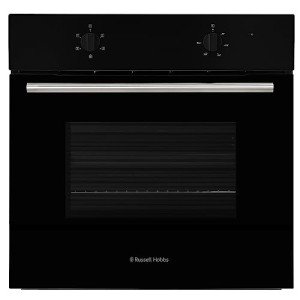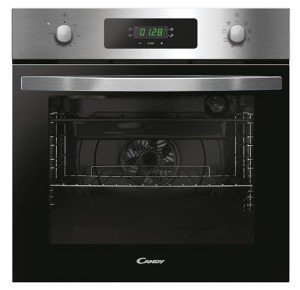- 작성자 Javier
- 댓글 0건
- 조회 570회
- 작성일 2025.06.28
본문
Understanding Single Ovens: Features, Benefits, and Buying Guide
Single ovens are a staple in modern-day kitchens, providing an ideal cooking option for people and families alike. This post explores the functions, benefits, and considerations of single ovens, together with a valuable purchasing guide and regularly asked concerns (FAQs) for anyone thinking about including one to their Kitchen appliances.
What is a Single Oven?
A single oven is generally a standalone device with one cooking compartment designed for baking, roasting, barbecuing, and sometimes steaming. Unlike double ovens, which include 2 separate compartments, single ovens enhance space while making sure flexibility in cooking options. They are offered in different sizes, designs, and fuel types, catering to different cooking needs and kitchen designs.

Features of Single Ovens
1. Size and Capacity
- Standard Size: Most single ovens are designed to fit within basic kitchen cabinets, typically determining 24 to 30 inches broad.
- Interior Capacity: Single ovens often feature interior capabilities ranging from 3.5 to 5 cubic feet, permitting the cooking of large meals like roasts, casseroles, and numerous trays of cookies.
2. Cooking Modes
Single ovens come equipped with different cooking modes, including:
- Convection Baking: Circulates hot air for even cooking.
- Grilling: Ideal for accomplishing a crispy surface on meat and veggies.
- Steam Cooking: Helps keep moisture in food and makes sure even cooking.
3. Control Options
- Digital Touch Controls: Easy-to-use interfaces that enable exact temperature and timer settings.
- Mechanical Controls: Traditional dials providing reliable and straightforward operation.
4. Self-Cleaning Functions
Numerous single ovens featured self-cleaning features, using high temperatures to turn food residue into ash, which can be quickly cleaned away.
5. Security Features
- Child Lock: Prevents accidental use by kids.
- Cooling Fan: Reduces outside temperatures, decreasing burn risks.
Table 1: Key Features to Look for in a Single Oven
| Feature | Description |
|---|---|
| Size | Typically 24 to 30 inches wide |
| Interior Capacity | Ranges from 3.5 to 5 cubic feet |
| Cooking Modes | Convection, grilling, steam cooking, etc. |
| Control Options | Digital touch controls, mechanical dials |
| Self-Cleaning Function | High-temperature cleansing for simple maintenance |
| Security Features | Kid lock and cooling fan |
Advantages of Single Ovens
Single ovens supply numerous advantages that make them a popular choice:

1. Space Efficiency
Suitable for compact kitchen areas, single ovens can seamlessly fit within cabinets, maximizing counter space.
2. Cost-efficient
Normally, single ovens are more budget friendly compared to double ovens. They likewise take in less energy, causing lower energy expenses.
3. Versatility
With multiple cooking modes and settings, single ovens can accommodate numerous cooking designs, making them ideal for a wide variety of cooking lovers.
4. Relieve of Use
Single ovens can be simple to run, making them available for amateur cooks while still supplying sophisticated functions for chef.
Purchasing Guide for Single Ovens
When buying a single oven, numerous elements need to be thought about to ensure it fulfills your cooking requires:
1. Size and Fit
- Measure the kitchen area to make sure the oven fits appropriately.
- Consider door swing area and how it will affect cabinet configuration.
2. Fuel Type
- Electric Ovens: Offer even cooking and exact temperature control.
- Gas Ovens: Provide quick heating and often a more wet cooking environment.
3. Cooking Features
Assess the types of cooking modes and extra features that attract your cooking design, such as convection baking, barbecuing settings, and steam choices.
4. Energy Efficiency
Try to find ovens with energy efficiency scores that will help in reducing electrical energy intake.
5. Budget plan
Determine your budget plan upfront, and compare choices within that range. Remember to think about long-term cost savings connected to energy intake.
6. Brand Name Reputation and Warranty
Research trusted brand names that offer reputable items and think about warranty choices that provide extra peace of mind.
Frequently Asked Questions about Single Ovens
Q: Can I use a single oven for all my cooking needs?A: Yes, single ovens are flexible and appropriate for a range of cooking methods, including baking, roasting, and grilling.
Q: What is the difference between a single oven and a double oven?A: A single oven has one cooking compartment, while a double oven includes two, permitting synchronised cooking at different temperatures. Q: Are single ovens energy-efficient? A: Many single ovens are created to be energy-efficient, taking in less electrical power than double ovens and providing much better performance options. Q: How do I keep my single oven?A: Regularly clean the oven using self-cleaning functions if available, and keep the interior devoid of spills
and particles to preserve ideal efficiency. Q: What cooking modes should I look for?A: Look for ovens that provide a range of cooking modes that match your cooking design, consisting of convection
and steam functions for more effective and versatile cooking. Single ovens are an outstanding choice for those seeking performance, simplicity, and adaptability in their cooking home appliances. Understanding their functions, advantages, and the important factors to consider when acquiring can help consumers make an informed choice. Whether you're a newbie cook or a culinary enthusiast, a single oven can show to be an important addition to your kitchen, enabling you to prepare an array of delicious meals with ease.
댓글목록 0개
등록된 댓글이 없습니다.

